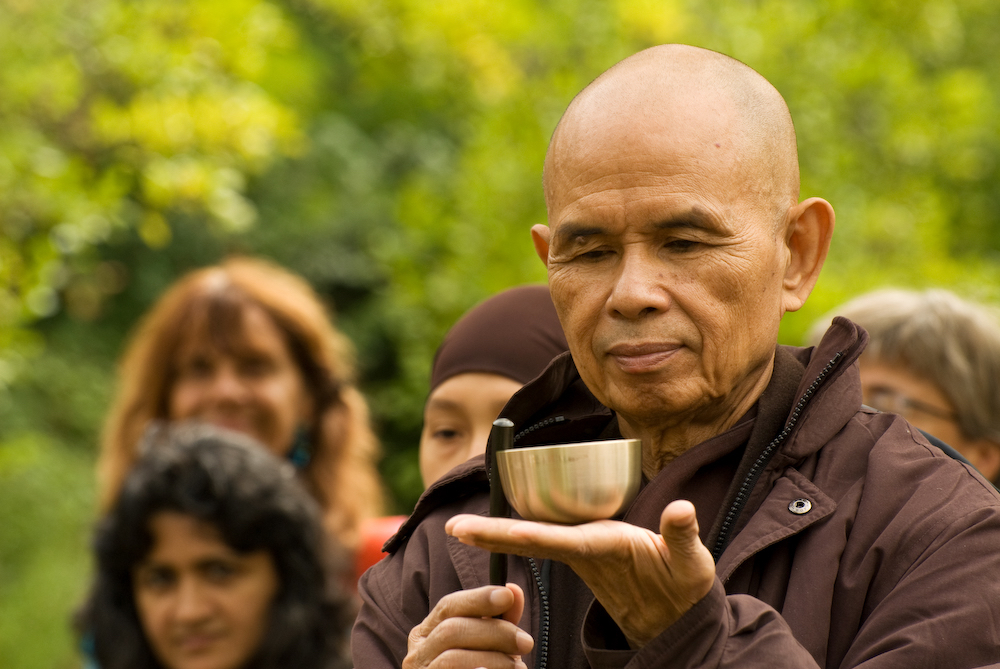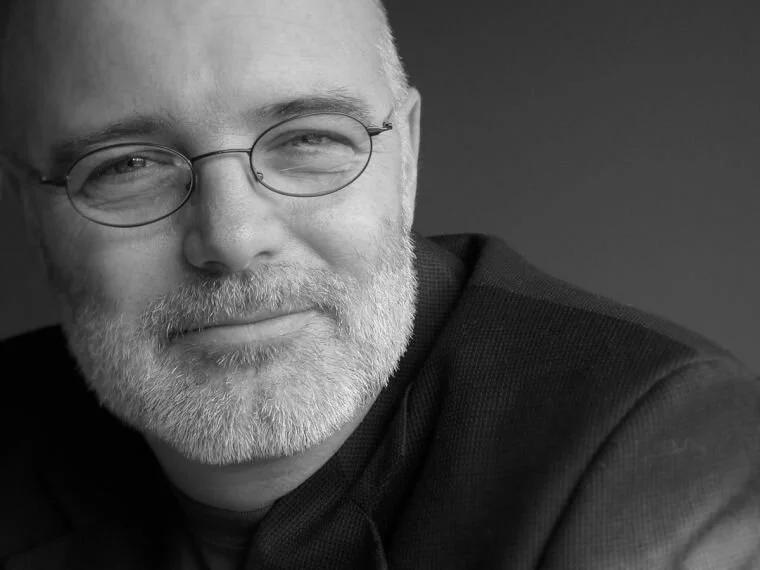
“Reflecting on Reflecting” by Thomas Moore
One of the key activities of the psyche is to reflect on events and experiences. If we have no reflection, we act on passions and impulses that then do not have the advantage of being processed by the mind, references to memory and history and personal and social culture in general. It is this cultural background that civilizes us, which means we can live in community because we can process our feelings and enthusiasms. Reflection makes our strong emotions available for life with others, so that we live by emotion and reflection as two coordinating activities that support each other.

Tao Te Ching (Chapter 3) — a Commentary by Galen Pearl
This chapter is divided into two parts and a coda. The first part highlights the cause and effect relationship between creating or perceiving disparity and the resulting discord. The second part is often interpreted as giving advice on how to govern others, but personally I think it is about how we govern ourselves.

“The Life Story of Thich Nhat Hanh” presented by Plum Village
Zen Master Thich Nhat Hanh is a global spiritual leader, poet, and peace activist, renowned for his powerful teachings and bestselling writings on mindfulness and peace. A gentle, humble monk, Dr. Martin Luther King, Jr. called him “an Apostle of peace and nonviolence” when nominating him for the Nobel Peace Prize. Exiled from his native Vietnam for almost four decades, Thich Nhat Hanh has been a pioneer bringing Buddhism and mindfulness to the West, and establishing an engaged Buddhist community for the 21st Century.

“The Openness that Holds It All” by Amoda Maa
The innocent longing to come home – what we call the spiritual search – is so often hijacked by an unconscious psychological agenda for comfort and perfection. Along with the desire to end the suffering created by ego’s tenacious story-telling comes a hope that this ending means we no longer have to feel what we don’t like to feel.

“The Wandering Taoist” — story by Solala Towler (transcript from YouTube)
The cold wind blowing off the western desert ruffled the beard of the old man riding slowly atop the water buffalo. It whipped around his traveling cloak and made him shiver deep within his robes. He tried wrapping the cloak a little tighter around his shoulders but it did him little good. It was a bad time of the year for traveling, but that could not be helped. The stolid beast plodded on slowly toward the frontier.
A horse would have been faster, but this beast was steadier, more surefooted in the mountains and ate very little. He supposed it was a bit of reverse vanity that prompted him to travel on so humble a mount, the last vestige of the once proud royal archivist.
SUPPORT THE GOOD WORK OF SOLALA TOWLER

“The Death, Resurrection and Ascension of Religion” by Seán ÓLaoire (Transcript and Video)
In the summer of 1963, in between the end of my junior year in high school and the beginning of my senior year in high school I spent seven months in a little village in West Cork called Cloghroe. Cloghroe is an area in which Gaelic is still the mother tongue. I spent the summer visiting all of the older people in the village and collecting proverbs from them. At the end of the summer I collected 432 proverbs that got published in the school as the little booklet of proverbs. What I learned then was that stories are the archived wisdom of any culture. You want to go to the wisdom of any culture, listen to their stories, their mythology, and if you want to get the the essential distillation of the stories go to the proverbs — these extraordinary one-liners.

“Lecture on Zen” by ALAN WATTS (transcribed by Alan Seaver)
Once upon a time, there was a Zen student who quoted an old Buddhist poem to his teacher, which says:The voices of torrents are from one great tongue, the lions of the hills are the pure body of Buddha. 'Isn't that right?' he said to the teacher. 'It is,' said the teacher, 'but it's a pity to say so.'It would be, of course, much better, if this occasion were celebrated with no talk at all, and if I addressed you in the manner of the ancient teachers of Zen, I should hit the microphone with my fan and leave. But I somehow have the feeling that since you have contributed to the support of the Zen Center, in expectation of learning something, a few words should be said, even though I warn you, that by explaining these things to you, I shall subject you to a very serious hoax.
If I allow you to leave here this evening, under the impression that you understand something about Zen, you will have missed the point entirely. Because Zen is a way of life, a state of being, that is not possible to embrace in any concept whatsoever, so that any concepts, any ideas, any words that I shall put across to you this evening will have as their object, showing you the limitations of words and of thinking.

“Faith after Doubt” by Brian McLaren — a Nomad Podcast Interview with Brian McLaren and Book Notes by Sam Radford
I’ve been reading books by Brian McLaren for coming up to twenty years. He is someone whose faith journey is several steps ahead of mine and, as such, he’s been a mentor from afar to me.
His latest book, Faith after Doubt, is my favourite of his books to date.
=It captures the journey I’ve been on for the last twenty years as well as providing vision and encouragement for the years ahead.
The book offers a map for where I’ve come from. He shares language and frameworks that give definition to the steps I’ve been taking these last two decades.
SUPPORT SAM RADFORD’S BLOG, NOMAD PODCAST & BRIAN MCLAREN’S FINE WORK

“Our Inherited Dysfunction (excerpt) THE NEW EARTH by Eckhart Tolle (Part 1)
If we look more deeply into humanity’s ancient religions and spiritual traditions, we will find that underneath the many surface differences there are two core insights that most of them agree on. The words they use to describe those insights differ, yet they all point to a twofold fundamental truth. The first part of this truth is the realization that the “normal” state of mind of most human beings contains a strong element of what we might call dysfunction or even madness. Certain teachings at the heart of Hinduism perhaps come closest to seeing this dysfunction as a form of collective mental illness. They call it maya, the veil of delusion. Ramana Maharshi, one of the greatest Indian sages, bluntly states: “The mind is maya.”

“The Offered Heart” by Jeannie Zandi
I invite you to close your eyes and imagine that the quiet and sweet darkness you sit in is the cave of your own sacred heart. Let your attention drop into the feel and texture of your heart area, letting it rest about two inches deep inside. Notice the feel, keep your attention there, as though there is a small object about the size of a quarter that are you are focusing on. And imagine the dark cave all around you, a cave whose air is alive with breath and life and energy. Turn away from the external world and the world of the mind and take sweet shelter in your own heart, with the reverence that you would treat any temple, mosque, church, hogan, or zendo. There you sit in the center of your innermost being sanctuary. Precious chalice of the Holy. Simplicity. Quiet. Ground. Breath.

“Expanding Our Sphere” by Galen Pearl
A minister was giving what I call an “audition sermon” at a church, in hopes of being called as their pastor. After the sermon, members of the congregation were invited to ask questions. Like many churches, this one was becoming smaller and grayer as the members aged. One person asked the minister what he would do to “grow” the church. He responded, “That depends on what you are willing to risk. Everyone like you is already here.”
BE A SUPPORTER OF MS. PEARLS INSPIRING BLOG

“An Integral Catholic Leader: Father Anthony de Mello, SJ” by Giorgio Piacenza Cabrer
Father Anthony de Mello SJ is considered one of the foremost mystical theologians of the late Twentieth Century. His simple and direct approach to life continues to untie all kinds of blockages preventing man’s acceptance of his spiritual nature, even decades after his unexpected death. De Mello’s radiated authenticity, love for all and his characteristic laughter tended to disarm any negative preconceived notions against his ideas. As far as my research goes, I’d say that most of those that knew him personally can attest to his sincere and friendly attitude to all as people from every religious persuasion felt comfortable and at soulfully at home near him.
READ MORE OF MR. PIACENZA’S ESSAYS

"There Are No Repetitions" (excerpt) SUBTLE SOUND The Zen Teaching of Maurine Stuart) by Maurine Stuart
What is the condition of our minds right now? How are our hearts? This moment is all we have—so at this moment, how creative are we, how in touch with the source are we?
We need courage to be creative. To be sensitive and aware requires great courage. This word “courage” comes from the same root as the French word “coeur,” which means heart. So please have the courage to listen to your heart, to your body, your hara, not just to your head. You will discover new ways to experience your life.

"The Art of Listening" from 'Power of Now' (and Commentary)
When listening to another person, don't just listen with your mind, listen with your whole body. Feel the energy field of your inner body as you listen. That takes attention away from thinking and creates a still space that enables you to truly listen without the mind interfering. You are giving the other person space — space to be. It is the most precious gift you can give. Most people don't know how to listen because the major part of their attention is taken up by thinking.

“Spiritual Materialism” (excerpt from) CUTTING THROUGH SPIRITUAL MATERIALISM by Chogyam Trungpa
WE HAVE COME here to learn about spirituality. I trust the genuine quality of this search, but we must question its nature. The problem is that ego can convert anything to its own use, even spirituality. Ego is constantly attempting to acquire and apply the teachings of spirituality for its own benefit. The teachings are treated as an external thing, external to “me,” a philosophy which we try to imitate. We do not actually want to identify with or become the teachings. So if our teacher speaks of renunciation of ego, we attempt to mimic renunciation of ego. We go through the motions, make the appropriate gestures, but we really do not want to sacrifice any part of our way of life. We become skillful actors, and while playing deaf and dumb to the real meaning of the teachings, we find some comfort in pretending to follow the path.

"God" (excerpt) The Essence of Alan Watts by Alan Watts
Modern Protestant theologians, and even some Catholics, have been talking recently about the death of God and about the possibility of a religionless religion, a religion which does not involve belief in God. What would become of the Gospel of Jesus Christ if it were shown that Jesus' own belief in God was unnecessary and invalid? What would remain of his teachings? Of his ideas about caring for other human beings, about social responsibility and so on. I think that would be a pretty wishy-washy kind of religion. If you're going to say that this life is fundamentally nothing but a pilgrimage from the maternity ward to the crematorium and that's it, baby, you've had it, I think that indicates a singular lack of imagination. I would like to look at the death-of-God theology in an entirely different way. What is dead is not God but an idea of God, a particular conception of God that has died in the sense of becoming implausible. And I find this a very good thing.
SUPPORT THE ALAN WATTS PROJECT

"Tolle on Religion" - REVISITED (excerpt) A New Earth
The greatest achievement of humanity is not its works of art, science, or technology, but the recognition of its own dysfunction, its own madness. In the distant past, this recognition already came to a few individuals. A man called Gautama Siddhartha, who lived 2,600 years ago in India, was perhaps the first who saw it with absolute clarity. Later, the title Buddha was conferred upon him. Buddha means "the awakened one." At about the same time, another of humanity's early awakened teachers emerged in China. His name was Lao Tzu. He left a record of his teaching in the form of one of the most profound spiritual books ever written, the Tao Te Ching.

"The Last Word" (excerpt) SUBTLE SOUND THE ZEN TEACHINGS OF MAURINE STUART
There is nothing that is not sacred; nothing that is not spiritual practice. Hakuin, that wonderful eighteenth-century Zen master who restored the vitality of Zen in Japan, warned against the belief that Zen requires the forceful rejection of all worldly concerns. True Zen practice is carried on in the midst of activity. When we are cooking, we are in deep cooking samadhi (where the logical and analytical ability of the being becomes silent). When we are cleaning, we are in deep cleaning samadhi. This condition, samadhi, is not a vacancy, a stupor, a spaced-out state of mind. It is a deeply awake, alert, vividly present condition—and of course, it may be blissful. We may be so vividly awake we can hear the ash from the incense fall.

"AWARENESS" — (excerpt from) An Anthony de Mello Spirituality Conference in His Own Words
A person is beyond the thinking mind. Many of you would probably be proud to be called Americans, as many Indians would probably be proud to be called Indians. But what is “American,” what is “Indian”? It’s a convention; it’s not part of your nature. All you’ve got is a label. You really don’t know the person. The concept always misses or omits something extremely important, something precious that is only found in reality, which is concrete uniqueness. The great Krishnamurti put it so well when he said, “The day you teach the child the name of the bird, the child will never see that bird again.” How true! The first time the child sees that fluffy, alive, moving object, and you say to him, Sparrow,” then tomorrow when the child sees another fluffy, moving object similar to it he says, “Oh, sparrows. I’ve seen sparrows. I’m bored by sparrows.”

"The Fact of Our Oneness" (excerpt) The Exquisite Risk by Mark Nepo
That which can't he stolen hut only given, that which survives by opening us all . . .
All the traditions speak of what Thomas Merton called a Hidden Wholeness, an unseen tissue that joins everything. It is in fact our deepest and oldest home. In truth, it is not really hidden, just so immense that it's hard for us to hold in view for very long. In actuality, the fact of our Oneness is constant and everywhere, a secret hidden in the open.
BE A SUPPORTER OF MR. NEPO’S FINE WORK

